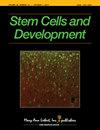Equine platelet lysate gel: a matrix for mesenchymal stem cell delivery.
IF 2
3区 医学
Q3 CELL & TISSUE ENGINEERING
引用次数: 2
Abstract
A variety of bio-scaffolds have been developed as carriers for the delivery of Mesenchymal Stem Cells (MSCs) however many of them are unable to provide direct cell nourishment, a critical factor for survival and retention of MSCs at the site of delivery. Platelet lysate (PL) is a plasma derived product rich in growth factors, that can be turned into a gel matrix following the addition of calcium chloride. Our objective was to characterize growth factor and cytokine release of equine PL gel (ePL gel) encapsulated with MSCs over time and to measure the viability and proliferation of ePL gel-encapsulated MSCs for up to 14 days. Release of interleukin-1β (IL-1β), interleukin-10 (IL-10), transforming growth factor beta (TGF-β), vascular endothelial growth factor (VEGF), and platelet derived growth factor (PDGF-BB), as well as fibrinogen degradation, were measured from ePL gel with and without equine bone marrow derived MSCs and compared to MSCs in monolayer. MSC proliferation and viability within the gel were assessed up to 14 days. Compared to monolayer MSC cultures, significantly higher concentrations of IL-1β, IL-10, and TGF-β were measured from supernatants collected from ePL gel containing MSCs at various time points. Significantly lower concentrations of PDGF-BB were measured in the supernatant when MSCs were incorporated in ePL gel while VEGF tended to be increased compared to MSCs in monolayer. Incorporation in ePL gel for up to 14 days did not appear to affect viability and proliferation rates of MSCs as these were found to be similar to those measured in monolayer cell culture. ePL gel may have the potential to serve as bio-scaffold for MSC delivery since it appears to support the proliferation and viability of MSCs for up to 14 days.马血小板裂解物凝胶:一种用于间充质干细胞递送的基质。
多种生物支架作为间充质干细胞(MSCs)递送的载体已被开发出来,但许多生物支架不能提供直接的细胞营养,而细胞营养是MSCs在递送部位存活和保留的关键因素。血小板裂解液(PL)是一种富含生长因子的血浆衍生产品,加入氯化钙后可转化为凝胶基质。我们的目标是随着时间的推移,表征包裹MSCs的马PL凝胶(ePL凝胶)的生长因子和细胞因子的释放,并测量长达14天的ePL凝胶包裹MSCs的活力和增殖。我们测量了含和不含马骨髓源性MSCs的ePL凝胶中白细胞介素-1β (IL-1β)、白细胞介素-10 (IL-10)、转化生长因子β (TGF-β)、血管内皮生长因子(VEGF)和血小板源性生长因子(PDGF-BB)的释放以及纤维蛋白原降解,并与单层MSCs进行了比较。在凝胶中评估MSC增殖和活力长达14天。与单层MSC培养相比,在不同时间点,从含有MSC的ePL凝胶收集的上清液中检测到IL-1β、IL-10和TGF-β的浓度明显更高。与单层MSCs相比,将MSCs掺入ePL凝胶后,上清中PDGF-BB浓度明显降低,而VEGF有升高的趋势。在ePL凝胶中掺入14天似乎不会影响MSCs的活力和增殖率,因为这些被发现与单层细胞培养中测量的结果相似。ePL凝胶可能有潜力作为间充质干细胞递送的生物支架,因为它似乎支持间充质干细胞的增殖和存活长达14天。
本文章由计算机程序翻译,如有差异,请以英文原文为准。
求助全文
约1分钟内获得全文
求助全文
来源期刊

Stem cells and development
医学-细胞与组织工程
CiteScore
7.80
自引率
2.50%
发文量
69
审稿时长
3 months
期刊介绍:
Stem Cells and Development is globally recognized as the trusted source for critical, even controversial coverage of emerging hypotheses and novel findings. With a focus on stem cells of all tissue types and their potential therapeutic applications, the Journal provides clinical, basic, and translational scientists with cutting-edge research and findings.
Stem Cells and Development coverage includes:
Embryogenesis and adult counterparts of this process
Physical processes linking stem cells, primary cell function, and structural development
Hypotheses exploring the relationship between genotype and phenotype
Development of vasculature, CNS, and other germ layer development and defects
Pluripotentiality of embryonic and somatic stem cells
The role of genetic and epigenetic factors in development
 求助内容:
求助内容: 应助结果提醒方式:
应助结果提醒方式:


